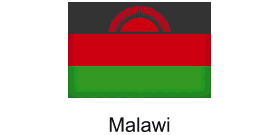 Malawi Unveils Secure, Modern Passport System: A New Era for Regional Mobility
Malawi Unveils Secure, Modern Passport System: A New Era for Regional Mobility
After years of setbacks, frustration, and public outcry, Malawi has turned a critical corner in its passport services, ushering in a new era of efficiency, security, and accessibility. The Chakwera administration’s successful rollout of a modern ICAO-compliant passport system marks a transformative moment for Malawians, especially those in the travel and tourism sector, and sets a benchmark for public service delivery across the region.
This breakthrough comes after a tumultuous period marred by a 2024 cyber breach that crippled the country’s passport infrastructure. The breach forced authorities to implement temporary solutions that, instead of resolving the crisis, led to further complications. Many Malawians found themselves stranded at borders, facing humiliating delays and even suspicion of forgery due to passports that failed to scan properly [[1]](https://allafrica.com/stories/202508270639.html). The interim fixes only deepened public mistrust and highlighted the urgent need for a robust, permanent solution.
Today, those challenges are firmly in the past. The new system, developed in partnership with Madras Security Printers of India, has already begun issuing biometric passports, with over 1,000 documents produced in the first month of operation [[2]](https://allafrica.com/stories/202508250054.html). This rapid resumption of services signals not just a technical upgrade, but a renewed commitment to serving citizens with transparency and reliability.
One of the most significant advancements is the system’s security and transparency. Applicants can now submit their documents online, pay electronically or via mobile money, and track the status of their applications in real time through a public database. This digital transformation eliminates the need for cumbersome paperwork and reduces opportunities for corruption—a persistent issue in the past. The ability to monitor applications online also empowers citizens, giving them greater control and peace of mind throughout the process.
Another major stride is the decentralization of passport services. Previously, applicants had to travel to major urban centers such as Lilongwe, Blantyre, Mangochi, or Mzuzu to access passport services. Now, the government has extended these services to additional locations, including Salima, Mzimba, Karonga, Kasungu, and Chikwawa. This move brings passport issuance closer to the people, reducing travel costs and wait times, and making it easier for Malawians from all regions to obtain travel documents. For the African travel industry, this decentralization is a game-changer, as it broadens the pool of potential travelers and supports regional tourism growth.
The new system is also fully ICAO-compliant, aligning Malawi with international standards for travel documents. This compliance is crucial for restoring the country’s reputation abroad and ensuring that Malawian passports are recognized and trusted at border posts worldwide. The previous system’s failures had led to Malawians being detained or denied entry in foreign countries, a situation that undermined both personal dignity and national pride [[1]](https://allafrica.com/stories/202508270639.html). With the new passports, Malawians can once again travel with confidence, knowing their documents meet global security and verification standards.
For the Chakwera administration, the successful implementation of this system is more than a technical achievement—it is a powerful demonstration of effective governance. By tackling corruption, streamlining processes, and embracing digital innovation, the government has restored public trust and set a new standard for service delivery. This turnaround is particularly noteworthy given the widespread skepticism that followed the cyber-attack and the subsequent operational chaos.
The impact of these reforms extends beyond individual travelers. For the broader African travel sector, Malawi’s experience offers valuable lessons in resilience, adaptability, and the importance of investing in secure, user-friendly infrastructure. As more African countries look to modernize their own passport and visa systems, Malawi’s journey stands as a model for how to overcome adversity and deliver tangible benefits to citizens.
Industry observers note that the new system’s efficiency is already being felt. Processing times have dropped, and the risk of document forgery has been dramatically reduced. The integration of mobile money payments is particularly relevant for sub-Saharan Africa, where mobile financial services are widely used and trusted. This feature not only streamlines the application process but also makes it more inclusive, allowing people in remote areas to participate fully in the country’s economic and social life.
For travel professionals across Africa, the modernization of Malawi’s passport system opens new opportunities. With more Malawians able to obtain secure travel documents quickly and easily, outbound tourism and business travel are expected to rise. This, in turn, could stimulate demand for flights, hotels, and related services, benefiting the entire regional travel ecosystem.
It is easy to focus on failures when public systems break down, but it is equally important to recognize progress when it occurs. The Chakwera administration’s determination to resolve Malawi’s passport crisis has paid off, delivering a solution that is secure, efficient, and accessible. The result is a passport system that Malawians can finally trust—a development that deserves recognition not just within Malawi, but across the continent.
As the dust settles on this chapter, Malawi’s experience serves as a reminder that effective leadership and investment in modern infrastructure can transform even the most troubled public services. For African travel industry stakeholders, the message is clear: the future belongs to those who prioritize security, transparency, and the needs of their citizens. Malawi’s passport transformation is not just a national victory—it is a beacon for the region, signaling what is possible when governments and partners work together to deliver real, lasting change.
